This gorgeous slightly over one-year-old red tailed hawk came in last week with a broken wing. How do I estimate age? Look at his eyes: they’re just beginning to develop the caramel color that would mark a two-year-old bird. A mature bird’s eyes will be dark brown.
A bird that has experienced free flight will never, ever be truly happy in captivity. No matter how “enriched” his environment is, it is NOT freedom. He’s alive, yes, but he’s not LIVING. Do you see the difference? This is no way for such a magnificent bird to spend the remainder of his days. If I can’t offer him the hope of free, unfettered flight, I can at least give him a humane, dignified, peaceful death. Life-saving is always preferable, but all too often rehabbers must choose life-ending. We do so because of our determination to make the decision that is right for the wildlife under our care. Their welfare isn’t our major concern; it’s our ONLY concern.
Sometimes we think a critter has a good chance at survival and release, even though it looks pretty rough. This mallard was a victim of repeated attacks by other ducks and geese; his rescuer actually intervened as he was about to be attacked again.
And then we have our long-term guest, the barred owl with the pinned wing…He’s doing great and will likely have the pin removed in the next week or so, as his x-rays are showing only minimal weekly improvement now. This means the healing has advanced about as much as it ever will.
Welcome to a rehabber’s world.
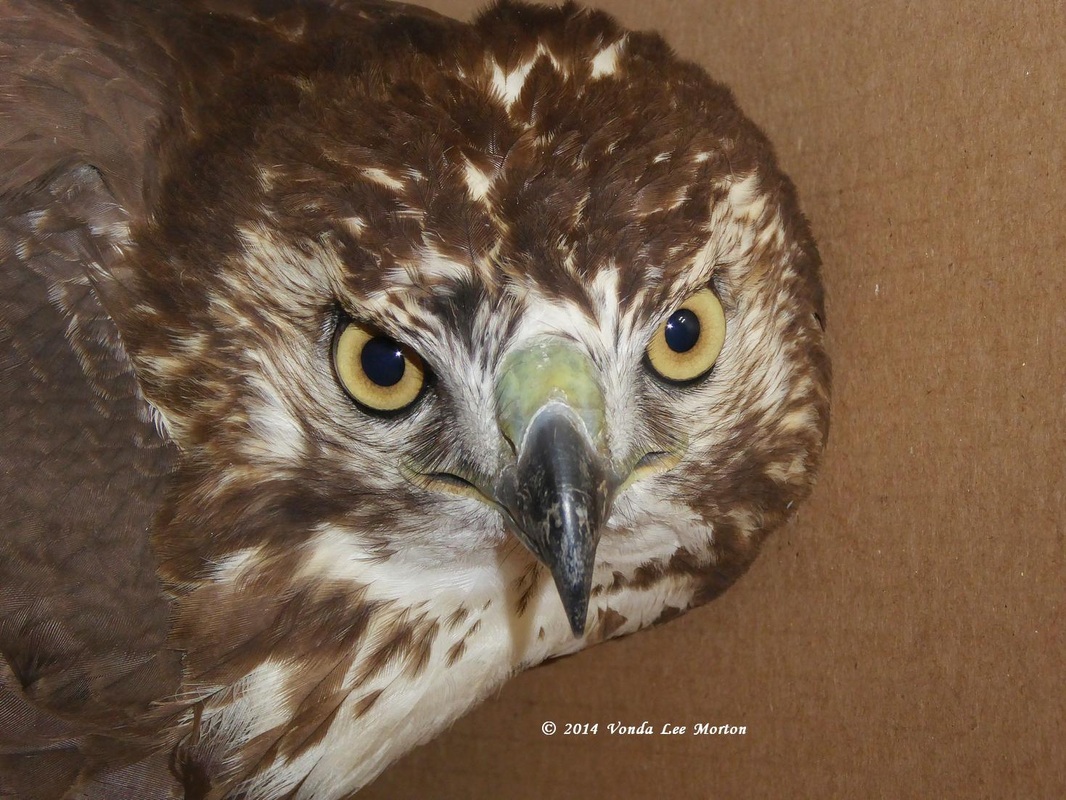
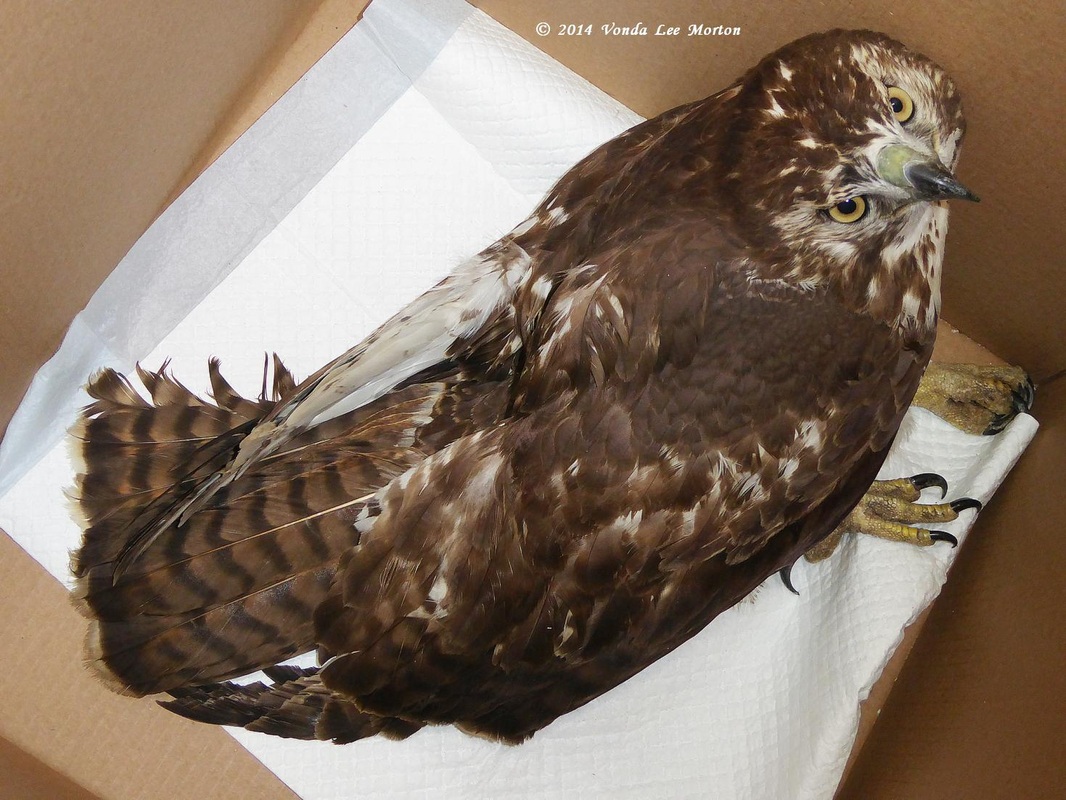
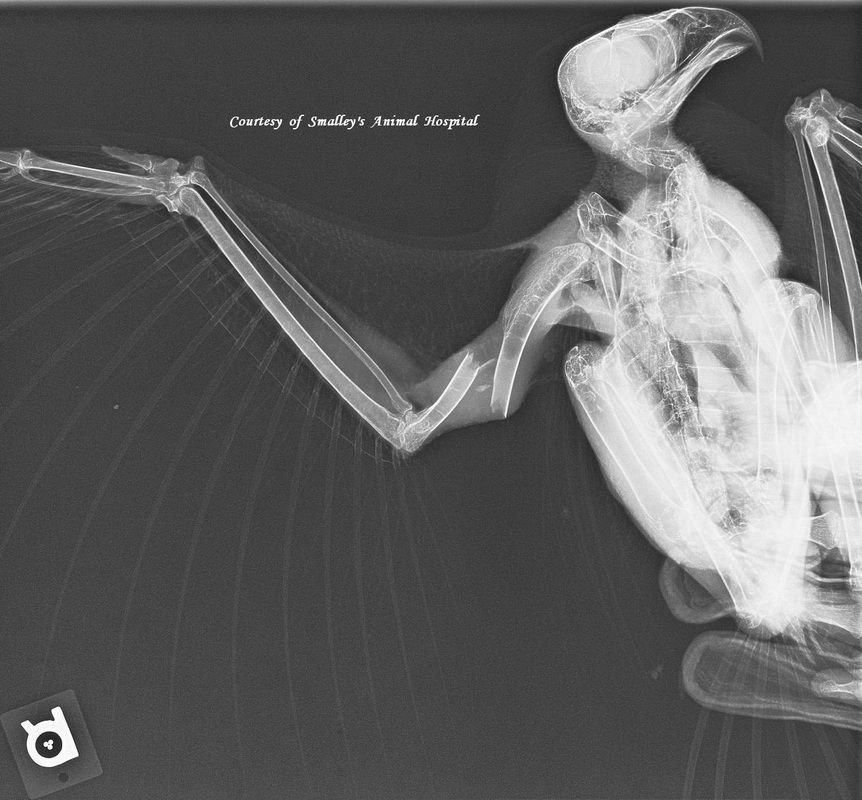
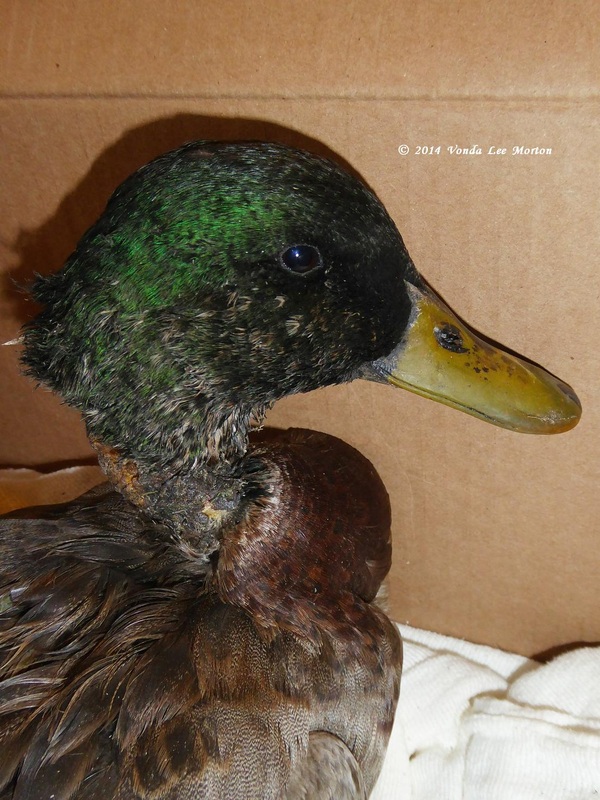
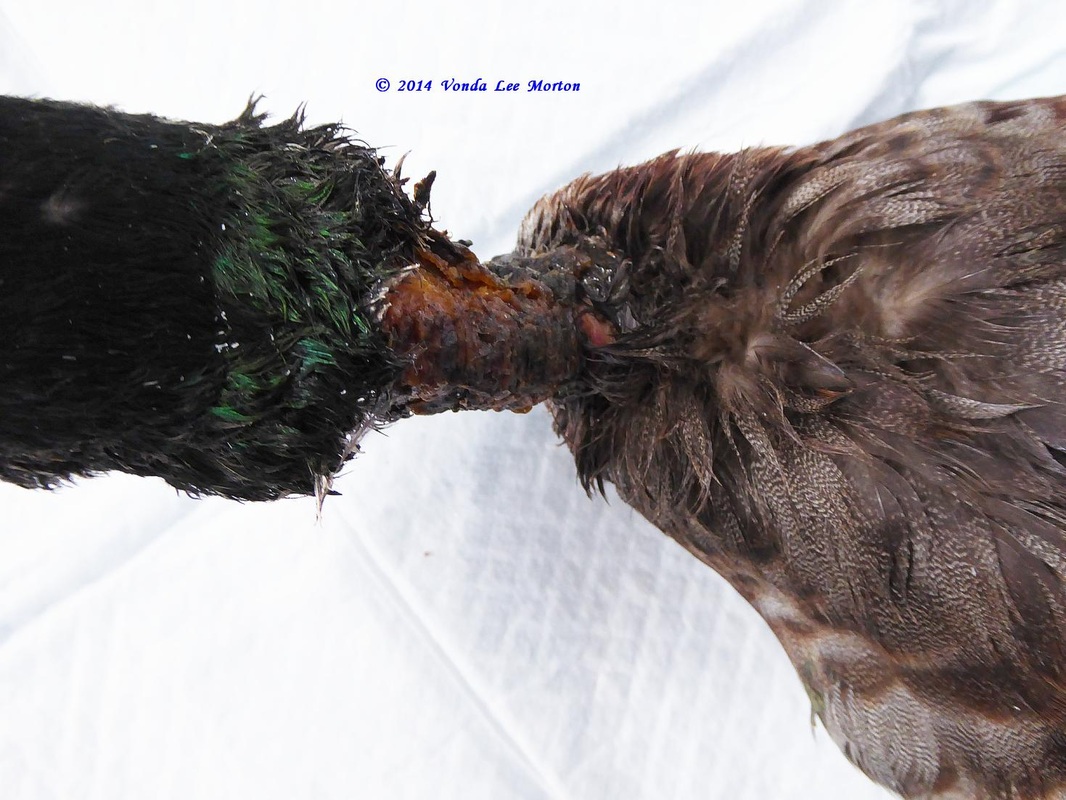
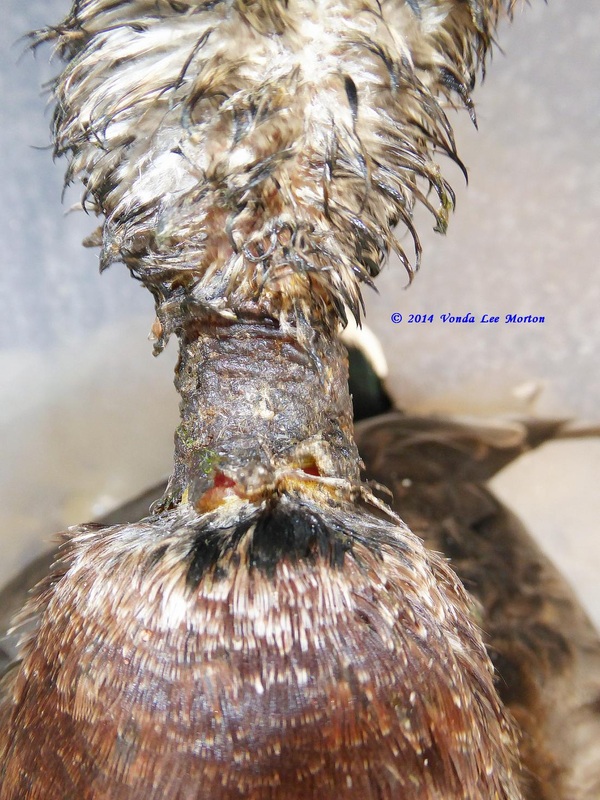
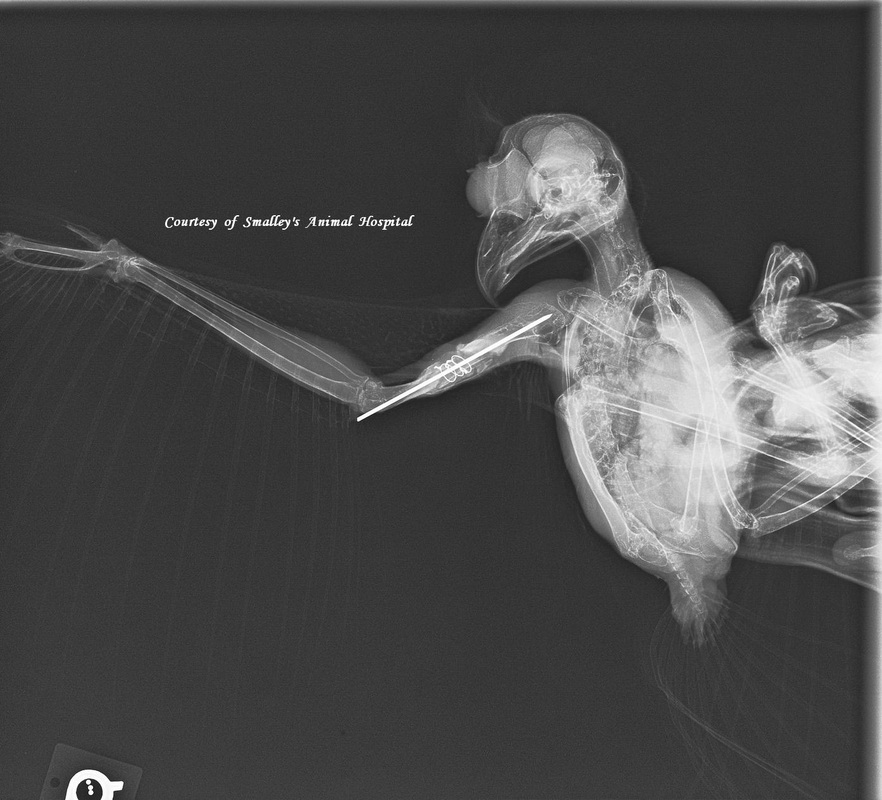
 RSS Feed
RSS Feed
